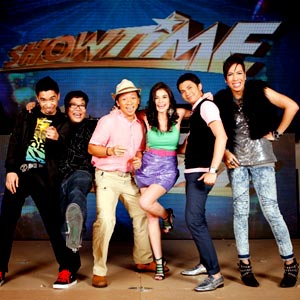A Response to "I Hate Filipino Culture"
The article about Pilipino culture took storm when it was first released. The title alone was enough of a reason to burn with rage. The author, who goes by the pen name Jaywalker, definitely roused more than a few tempers making it one of his most popular blog posts. Jaywalker went on to name several aspects that he hates about the so-called “masa culture” of the Philippines such as “religious zealotry,” “inter-cultural ignorance,” and the entertainment industry, among others. He criticized Pilipinos for the tendency to leave fate up to God and for the incessant novelty songs and shows that the Pilipino entertainment industry churns out; he went on and on. Jaywalker hit home when he targeted the common thread in all of his complaints—ignorance. Jaywalker describes “masa culture” as:
“[a] culture that is rife with Crab mentality, dragging down anyone who wishes to rise up into their own pit of communal stagnation; a culture that is so practical that it lacks awareness and interest on matters that do not immediately concern their day-to-day living. A culture that puts so much emphasis on idolatry that independent thinking becomes muffled.”
His words sear into Pilipino pride. His explication makes me angry, as it would anyone with Pilipino ancestry. As a Fil-Am, my heart smolders with mixed emotions, because as much as I don’t agree with Jaywalker’s tone, I can’t completely dismiss his opinions. I understand his discontent when he talks about the double standard about God, his frustration when he describes the frightening way that one’s emotions dominate decision-making, and his exasperation when he ends his article with an almost desperate plea. With a great amount of reluctance, I almost want to agree. Every now and then, I secretly roll my eyes in irritation when someone changes the channel to a Pilipino game show. I purse my lips when I hear about dominance of religion in everyday thinking.
As much as I identify with Jaywalker’s ideas (not with his harsh words nor his pretentious tone), I really cannot comment on them. I’m a Pilipina, but I’m also an American. I gave up my right to judge a culture once I was immersed from birth in a particular culture that is deeply American despite its Pilipino influences. I can identify as Pilipino all I want, but at the end of the day, my experiences and viewpoints are different from someone raised in the Philippines.
Each country needs to develop in its own way, by its own standards, or else it will never be able to stand up on its own. Fil-Ams can help as much as we’d like to develop the Philippines, but we have to make sure that we don’t overstep our boundaries. In the United States, religion and state cannot mix, but who are we to say that they can’t in another country? The separation of church and state seems obvious to Americans, but for a country whose culture is dripping in religion, it’s difficult to separate those two entities. I believe the role of Fil-Ams in the further development of the Philippines is to provide opportunities for Pilipinos to realize their potential, to give them the chance to see how successful just one individual can be, in order to better their life and better their country.
According to the Census Bureau, Fil-Ams are currently the second largest Asian minority in the United States, second only to Chinese Americans. Yet the influence of our culture and heritage are not as well known as say, Korean or Vietnamese Americans, each with smaller populations here in the US. One example of this lesser known presence is the lack of Filipino restaurants. If we were to see the rise of the Fil-Am food industry, it would assist in the development of the Fil-Am community. It will create more discussion about Pilipino issues as well as the country itself.
Our status as one of the largest Asian communities is a bit tempered by the fact that we don't have much representation in the public sphere. More representation can bring more attention to issues concerning the Philippines. If our congressmen see that a great number of their constituents are interested in a certain matter, then more consideration will be given to that matter over another. Of course, the political system involves much more complicated steps than just reaching out to your congressmen, but taking action is much better than staying stagnant. If we stay stagnant, then Pilipinos, Fil-Ams, and all those part of the diaspora are just feeding into the image that Jaywalker so bitterly describes.
Photo Credit: fanportal.org


